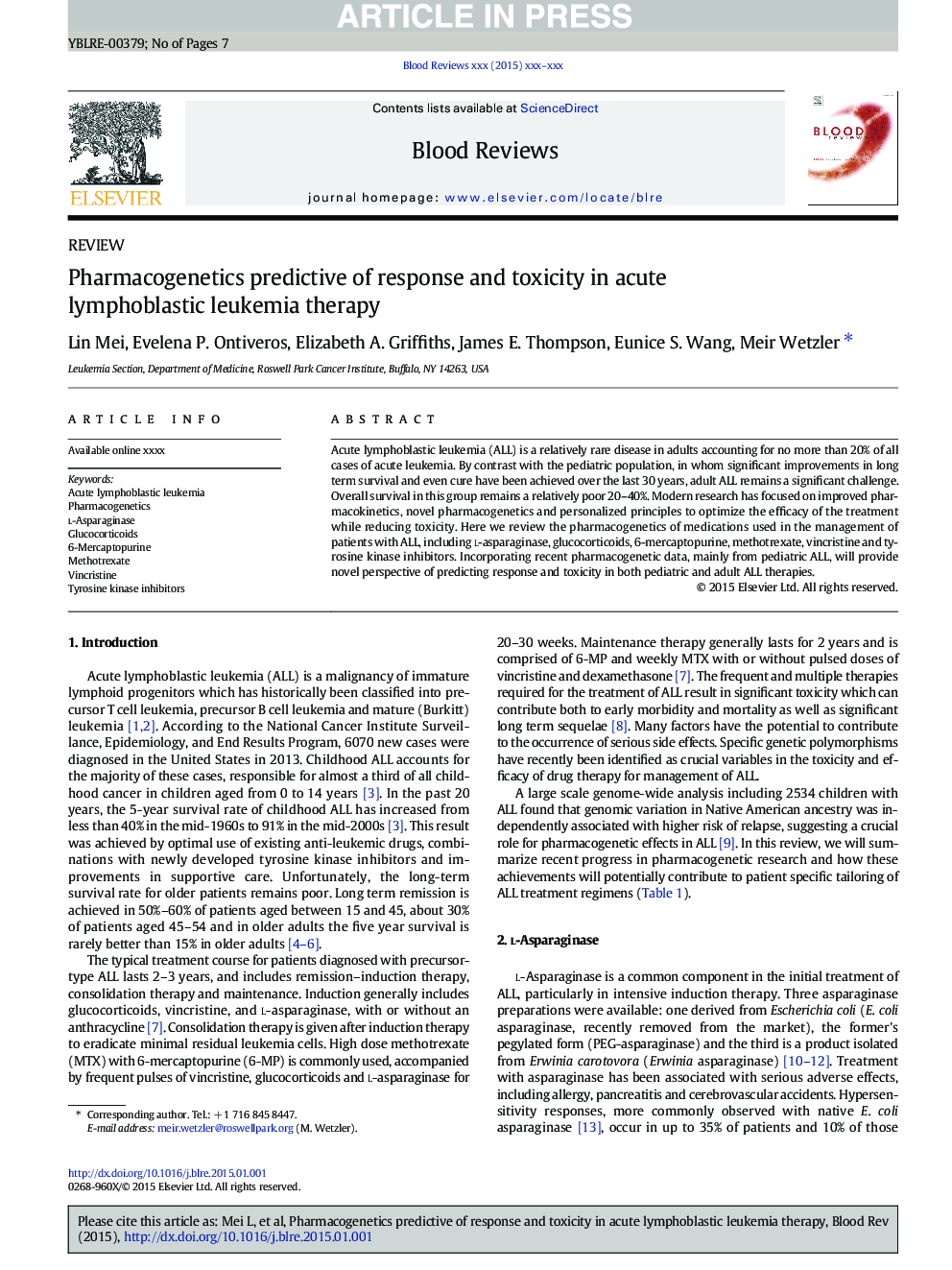| Article ID | Journal | Published Year | Pages | File Type |
|---|---|---|---|---|
| 10895744 | Blood Reviews | 2015 | 7 Pages |
Abstract
Acute lymphoblastic leukemia (ALL) is a relatively rare disease in adults accounting for no more than 20% of all cases of acute leukemia. By contrast with the pediatric population, in whom significant improvements in long term survival and even cure have been achieved over the last 30Â years, adult ALL remains a significant challenge. Overall survival in this group remains a relatively poor 20-40%. Modern research has focused on improved pharmacokinetics, novel pharmacogenetics and personalized principles to optimize the efficacy of the treatment while reducing toxicity. Here we review the pharmacogenetics of medications used in the management of patients with ALL, including l-asparaginase, glucocorticoids, 6-mercaptopurine, methotrexate, vincristine and tyrosine kinase inhibitors. Incorporating recent pharmacogenetic data, mainly from pediatric ALL, will provide novel perspective of predicting response and toxicity in both pediatric and adult ALL therapies.
Keywords
Related Topics
Life Sciences
Biochemistry, Genetics and Molecular Biology
Cancer Research
Authors
Lin Mei, Evelena P. Ontiveros, Elizabeth A. Griffiths, James E. Thompson, Eunice S. Wang, Meir Wetzler,
